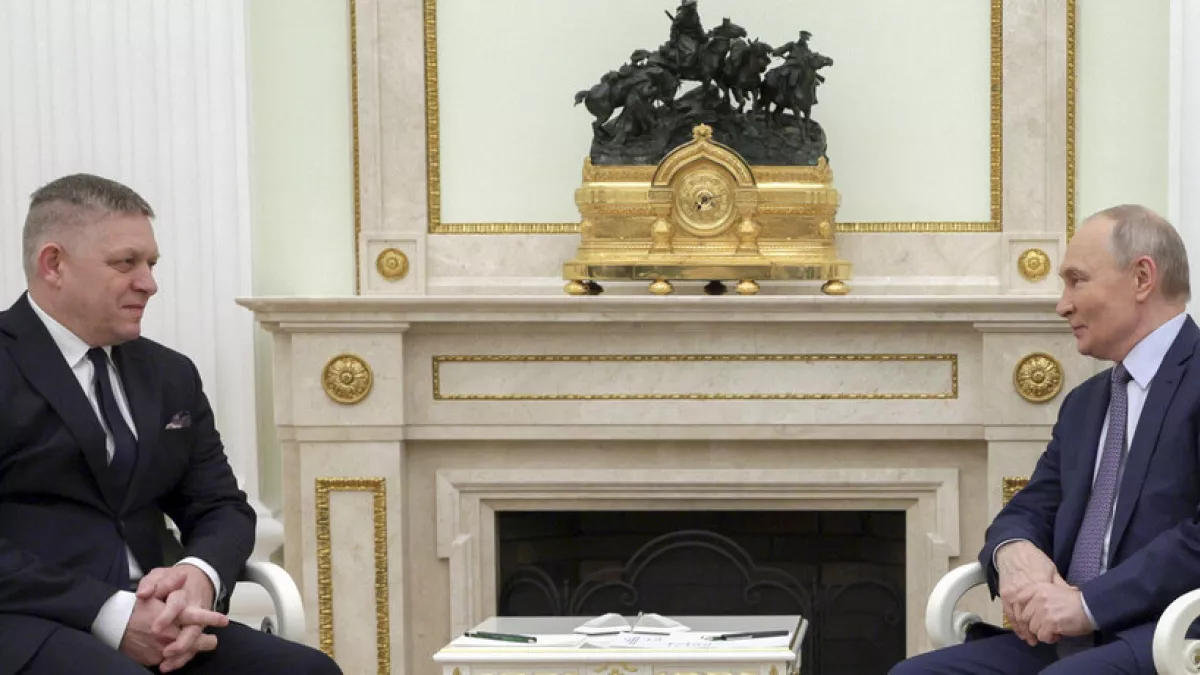Slovak Prime Minister Robert Fico’s visit to Moscow on December 22, 2024, marked a rare instance of an EU leader meeting with Russian President Vladimir Putin since Russia’s invasion of Ukraine in 2022. The discussions centered on energy issues, particularly the transit of Russian natural gas through Ukraine, as well as the ongoing war in Ukraine and bilateral relations between Slovakia and Russia. Fico’s trip has been widely criticized within Slovakia and beyond, given the broader European Union’s support for Ukraine and sanctions against Russia.
One of the key issues discussed was the expiration of a gas transit agreement between Ukraine and Russia, which currently ensures natural gas supplies to Slovakia. Ukrainian President Volodymyr Zelenskyy recently stated that Kyiv would not renew the deal, prompting Fico to seek assurances from Putin regarding future gas deliveries. Fico expressed concerns about the impact on Slovakia’s energy security, criticizing Ukraine’s decision and opposing EU sanctions on Russia’s nuclear sector, citing Slovakia’s reliance on nuclear energy.

The meeting also included discussions on the conflict in Ukraine and the potential for a peaceful resolution. Fico stated that he and Putin talked about ways to standardize relations between Slovakia and Russia, signaling a departure from the more confrontational stance taken by most EU nations. After the meeting, Fico emphasized his alignment with Slovakia’s national interests, positioning his visit as a response to recent developments at the EU level.
Fico’s trip drew sharp criticism from Slovak opposition parties, which view his engagement with Putin as contrary to Slovakia’s commitments to European solidarity and support for Ukraine. Slovakia has been taking steps to reduce its dependence on Russian energy, including signing contracts to import natural gas from Azerbaijan and the United States. These moves are part of broader efforts to secure alternative energy sources and prepare for potential disruptions in Russian supplies.
Fico’s pro-Russian stance has been a consistent feature of his policies since returning to power in 2023. He has ended military aid to Ukraine, criticized Western sanctions on Russia, and pledged to block Ukraine’s bid for NATO membership. His rhetoric, appearances on Russian state media, and plans to attend Russia’s Victory Day celebrations next year have positioned him as a divisive figure in European politics, attracting condemnation from Kyiv and other EU capitals.


